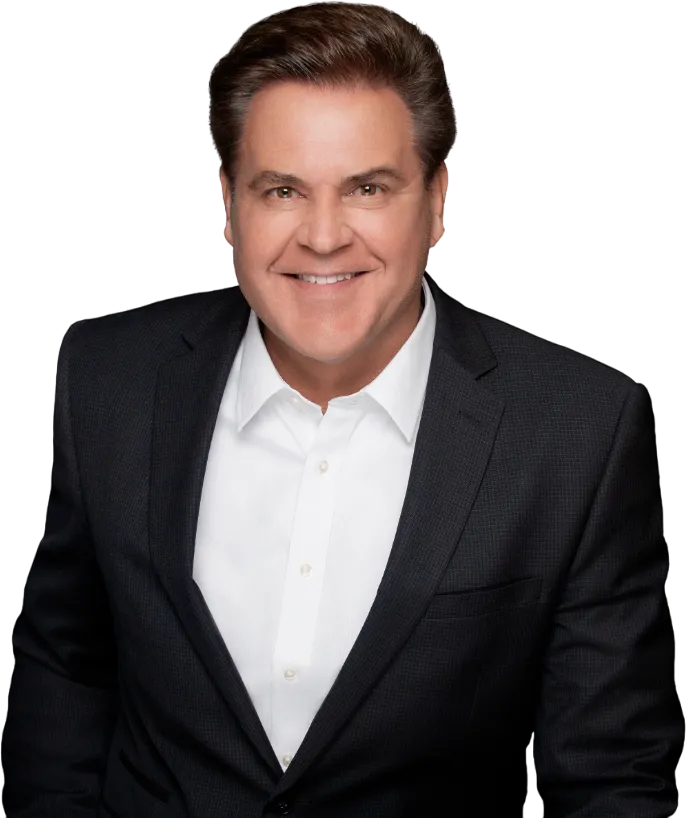- Home
- About
- Rates
- Calculator
- Loan Programs
- Down Payment Assistance
- FHA Loans
- Conventional Loans
- VA Loans
- Jumbo Loan
- DSCR Loans
- Self-Employed Loans
- Second Mortgages
- P&L Loans
- HELOC Loans
- Bank Statement Loans
- Reno/Rehab Loans
- Reverse Mortgages
- USDA Loans
- Construction Loans
- Debt Consolidations Loan
- Investor Loans
- Equity Builder Rapid Payoff Loan
- Doctor Loans
- Teacher Loans
- Law Enforcement Loans
- Firefighter Loans
- Rental Property Loans
- Debt Consolidations Loan
- Resources
- News
Self-Employed & Business Owner Mortgages
Mortgage Solutions Built for Entrepreneurs
- Purchase
- Refinance
- Cash Out
- Debt Consolidation
Whether you're a plumber, chef, freelancer, or physician with your own practice—simplified income verification and flexible qualification options designed specifically for self-employed professionals and business owners.

Simplified Documentation
Bank statement or 1099 verification options

Flexible Approval
Work with variable income and tax strategies

Fast Closing
Close in as little as 21 days
0+ Years
Serving Self-Employed Borrowers
0%
Satisfaction Rate
$0B+
Loans Funded for Entrepreneurs
0+
Business Owners Helped
Built for Your Business Reality
Self-employment shouldn't be a barrier to homeownership. Our specialized programs understand the unique financial picture of business owners and independent professionals.

Flexible Income Documentation
Choose from bank statements, 1099s, CPA letters, or P&L statements. We work with how you manage your business finances.
Multiple verification options

Tax Strategy Friendly
We understand write-offs and business expenses. Qualify based on actual cash flow, not just tax returns that show lower income.
Write-offs don't hurt you

Fast Approval Process
Streamlined underwriting designed for self-employed borrowers. No endless paperwork requests or delays.
Close in 21-30 days

Competitive Rates
Access conventional rates and terms. Being self-employed doesn't mean paying premium pricing.
Traditional loan rates

Recent Business Start-Up OK
Only 1-2 years self-employment history required in many cases. Growing your business? We can still help.
As little as 1 year required

Multiple Property Types
Primary residence, second home, or investment property. All property types and loan amounts considered.
No restrictions
We Serve All Self-Employed Professionals
From trades to tech, medicine to the arts—if you work for yourself, we have mortgage solutions designed for you.

Trade Professionals
Plumbers, electricians, contractors, HVAC specialists, and skilled tradespeople

Service Industry
Restaurant owners, chefs, salon owners, hospitality professionals

Freelancers & Consultants
Designers, developers, consultants, writers, and creative professionals
Traditional Mortgage vs. Self-Employed Loan
See why our specialized self-employed mortgage programs offer a better path to homeownership for business owners and independent professionals.
| Feature |
Traditional Mortgage
Standard W-2 Employee
|
Self-Employed Loan
Business Owner / Freelancer
|
|---|---|---|
| Income Verification | 2 years full tax returns | Bank statements or 1099s |
| Tax Write-Offs | Reduce qualifying income | Added back to income |
| Business History Required | 2+ years minimum | As little as 1 year |
| Documentation Burden | Extensive paperwork | Streamlined process |
| Understanding of Business | Limited flexibility | Business-savvy underwriting |
| Approval Timeline | 45–60 days | 21–30 days |

The Bottom Line
Self-employed mortgages are specifically designed to work with how entrepreneurs actually manage their finances. No more being penalized for smart tax strategies or dealing with underwriters who don't understand business ownership.
Simple Application Process
We've streamlined the mortgage process specifically for self-employed borrowers. No unnecessary complications, just a clear path to homeownership.
01

Step 01

Submit Application
Quick online application with basic business and income information. We'll discuss which documentation option works best for you—bank statements, 1099s, or P&L statements.
15 minutes
02

Step 02

Income Review & Pre-Approval
Our specialized underwriters review your business financials with an understanding of self-employment. We calculate qualifying income using methods that work for entrepreneurs.
2-3 business days
03

Step 03

Property & Final Approval
Once you find your property, we finalize underwriting and prepare for closing. Our streamlined process is designed to move quickly without sacrificing thoroughness.
10-14 days
04

Step 04

Closing & Keys
Close on your new home with confidence. Our team coordinates all final details to ensure a smooth closing day experience.
1 day
Documentation You'll Need
The list of documentation items shown below is a good general list. However, based on your borrower profile overlayed with the specific loan program underwriting guidelines, you may need to provide additional information. In some circumstances, you may not need to provide the entire list of items. Speak with Rodney Rose, your trusted loan officer, for your specific documentation needed.
Tax returns - You will need to fill in a Form 4506-T, and provide your tax forms (the last 2 years should suffice).
Pay stubs, W-2s, 1099's, K-1's, or other proof of income -These include your most recent 1 month of pay stubs. If you are self-employed you must provide the two most recent tax returns as well as a year-to-date profit and loss statement. If you file a separate business tax return, you will need to provide the most recent 2 years along with a year-to-date profit and loss statement.
Bank statements and other assets - Lenders need your most recent 2 months bank statements and may request proof of your retirement accounts, assets, as well as other investment accounts.
Credit history and FICO score - Your credit report will be obtained which will provide details of your credit payment history, including any episodes of bankruptcies or foreclosures.
Gift letters - If any friend or family member wants to help you with the down payment or closing costs by offering you some cash you must provide a “gift letter” which states that the money is a gift and not a loan.
Photo ID - Provide a government issued ID with photo such as a driver's license or passport.
Renting history - Your history as a tenant on rent to guarantee you can pay your rent bills on time.
Co-Borrower or Co-Signor - If a Co-Borrower or Co-Signor is used in qualifying. You will need to provide all of the same items for them also.
Total Timeline: 21-30 Days to Close
From application to keys in hand, our streamlined process is designed for efficiency without cutting corners. Most self-employed borrowers close within a month.
✓ No Lengthy Tax Return Analysis
✓ No Lengthy Tax Return Analysis
✓ No Lengthy Tax Return Analysis
Trusted by Thousands of Entrepreneurs
Real stories from self-employed professionals who achieved homeownership with our specialized mortgage programs.
★ ★ ★ ★ ★
"After being turned down by three banks because of my tax write-offs, E Mortgage Capital understood my business. They used my bank statements and I closed in 25 days. Finally, lenders who get entrepreneurship."
Marcus Chen
Restaurant Owner
★ ★ ★ ★ ★
"Only two years of 1099 income and I thought homeownership was years away. The team showed me I qualified now using my consistent monthly deposits. Professional, knowledgeable, and genuinely helpful."
Sarah Martinez
Freelance Consultant
★ ★ ★ ★ ★
"The difference between traditional lenders and E Mortgage Capital is night and day. They actually understand variable income and seasonal work. No judgment, just solutions. Highly recommend to any self-employed professional."
David Thompson
Licensed Contractor
★ ★ ★ ★ ★
"Starting my own practice meant lower taxable income for strategic reasons. Other lenders only saw the tax returns. E Mortgage Capital looked at the full financial picture and got me approved at a great rate."
Dr. Priya Patel
Private Practice Physician
Join Thousands of Self-Employed Homeowners
Don't let self-employment hold you back from homeownership. Our specialized mortgage programs have helped over 5,000 entrepreneurs, freelancers, and business owners secure financing with rates and terms that work.
No tax return penalties
Business-savvy underwriting
Close in as little as 21 days
Frequently Asked Questions
Get answers to common questions about self-employed mortgages and our qualification process.
How long do I need to be self-employed to qualify?
Most programs require only 1-2 years of self-employment history. In some cases, if you transitioned to self-employment in the same field you previously worked in as a W-2 employee, we may be able to count some of your employment history. The key is showing consistent income and business stability.
What documentation do I need to provide?
We offer multiple documentation options: bank statements (12-24 months), 1099 forms, profit & loss statements prepared by a CPA, or business tax returns if you prefer. We'll work with you to determine which option shows your income in the best light and requires the least hassle.
Will my tax write-offs hurt my mortgage application?
Not with our self-employed programs. We understand that smart business owners maximize deductions to minimize taxes. Our underwriters can add back many business expenses to your qualifying income, including depreciation, business use of home, business mileage, and other legitimate deductions.
What credit score do I need?
Minimum credit scores typically range from 620-680 depending on the specific program, down payment amount, and overall financial profile. Higher scores (700+) generally qualify for better rates. We can discuss credit improvement strategies if you're close to qualifying.
How much down payment is required?
Down payment requirements vary by program and property type. For primary residences, we offer options starting at 10-15% down. Investment properties typically require 20-25% down. The larger your down payment, the better your rate and terms will be.
Can I use this for investment properties or only primary residence?
Yes, you can use self-employed mortgages for primary residences, second homes, and investment properties. Each property type has specific requirements and rates. Many of our self-employed clients use these programs to purchase both their home and investment properties.
My income varies month to month. Is that a problem?
Variable income is completely normal for self-employed professionals, and our programs are designed with this in mind. We look at average income over the documentation period (12-24 months) rather than requiring steady identical payments every month. Seasonal businesses and fluctuating income patterns are understood and accommodated.
How do self-employed mortgage rates compare to traditional mortgages?
Our self-employed mortgage rates are competitive with traditional mortgages. Rate depends on credit score, down payment, loan amount, and documentation type. Many self-employed borrowers qualify for rates similar to W-2 employees. Bank statement programs may have slightly higher rates than traditional documentation, but the difference is often minimal with good credit and adequate down payment.
What if I just started my business this year?
If you have less than 1 year of self-employment history, we may still have options if you have significant reserves, a large down payment, or if you were previously employed in the same field. Contact us to discuss your specific situation—we evaluate each application individually and look for ways to make approval work.
Can I qualify if I'm only a partial owner of my business?
Yes, partial business owners (25% or more ownership) can typically use self-employed income for qualification. We'll need documentation of your ownership percentage and your share of business income. Partnership and LLC income are commonly used for mortgage qualification.

Still Have Questions?
Every self-employed situation is unique. Schedule a free consultation with one of our self-employed mortgage specialists to discuss your specific circumstances and get personalized answers.
Schedule Free Consultation →
Ready to Get Pre-Qualified?
Take the first step toward homeownership. Our self-employed mortgage specialists will review your unique financial situation and show you exactly what you qualify for—with no obligation and no hard credit pull until you're ready to proceed.

Call Us
Mon-Fri 8AM-7PM, Sat 9AM-5PM EST

Email Us
We respond within 24 hours
E Mortgage Capital is committed to helping self-employed professionals achieve homeownership. We understand your unique financial situation and have the specialized programs to make it happen.







